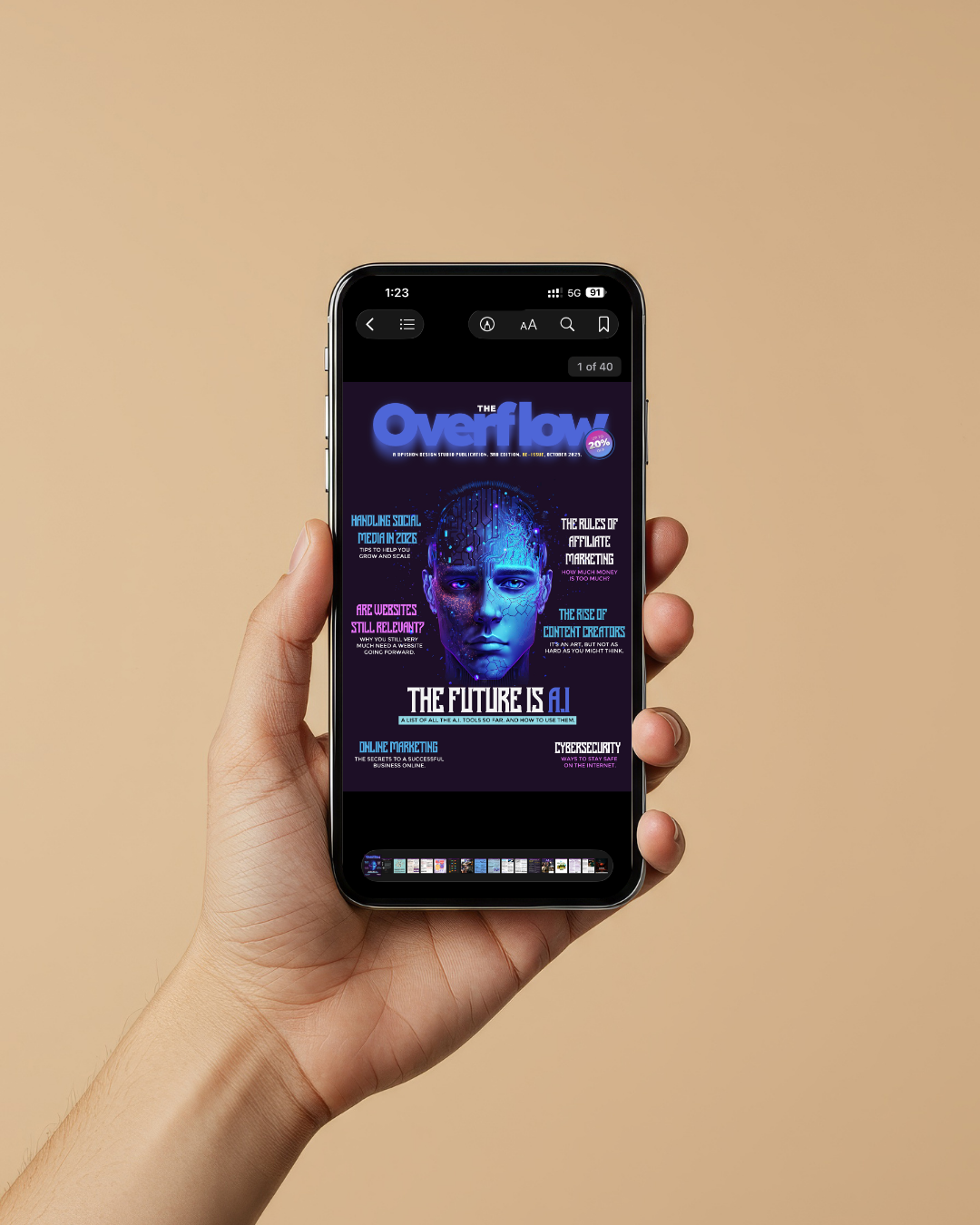I’ve been running Pishon Design Studio as a tech agency for 10 years, (legally) and in that time I’ve learned a few things every designer or business owner should know—contracts, customer service, etc. These insights will save you time, stress, and money.
If we count the years BEFORE it was renamed to Pishon Design Studio, I could say it’s more than 10 years, but I digress. Let’s dig in.
10 Lessons From 10 Years in Web Design
1. Be humble
“No matter how good you think you are, there’s always someone better. Clients will sometimes challenge you, and that’s okay. Humility keeps you learning, open to feedback, and prevents ego from ruining projects.”

Your opinion isn’t always right. Clients hire you for solutions, not for your artistic vision. Listen to what they need before you tell them what they want. Ask questions. Understand their business before you design anything.
Being right doesn’t matter if you lose the client. Being collaborative keeps you employed.
2. Set contracts

“Verbal agreements are risky. Put everything in writing. Scope, timelines, payments—make them crystal clear. Contracts protect you, protect the client, and eliminate gray areas when things go wrong.”
Everything goes in writing. Scope, timeline, payment terms, revision limits, what happens when requirements change. No handshake deals. No “we’ll figure it out as we go.”
Include specific language about scope changes and additional work. Define what constitutes a revision versus new work. Set payment schedules tied to milestones, not completion.
Clients respect clear terms upfront more than they appreciate vague flexibility that leads to problems later.
Stop Losing Money to a Bad Website
Get a fast, modern, mobile-optimized website that actually converts visitors into customers.
No setup fees. Built for results.
3. Keep your finances separate
“Never mix business money with personal money. Open a business account. Track income and expenses separately. It makes taxes, planning, and scaling possible. Without this, you’ll always feel broke.”
Business account, personal account. Keep them separate from day one. This isn’t optional.
You need to know if your business is profitable or if you’re just moving personal money around to cover expenses. Separate accounts make taxes easier, tracking clearer, and help you understand your actual business performance.
Get a business credit card. Use it only for business expenses. Track everything.
4. Keep records of everything
“Every conversation, every revision, every payment—document it. It saves you when memories fade or disputes happen. A simple email thread or note can resolve problems quickly.”
Save emails. Keep project notes. Record decisions and when they were made. Create a system and use it consistently.When scope changes, document it. When clients approve designs, save the approval. When requirements shift, note the date and reason. This protects you and helps you improve your process.
Organization is professional. Disorganization costs money.
5. Backup all client files—on a hard drive
“Don’t trust just the cloud. Clients lose files, websites get hacked, hosts shut down. A physical backup is your safety net. Years later, a client may come back and you’ll look like a hero for still having their files.”
Cloud backup and physical backup. Both. Cloud services fail, accounts get compromised, companies disappear.
External hard drive, updated regularly, stored securely. Your clients depend on you to protect their digital assets. Losing their files damages their business and destroys your reputation.
This is basic professional responsibility, not optional paranoia.

AD: DOWNLOAD NOW.
6. Keep a team—you can’t do it alone

“You might start solo, but growth requires help. Designers, developers, copywriters, accountants. Delegating doesn’t just free time—it raises the quality of your work.”
You cannot handle every aspect of the business effectively. Identify what you do well and what drains your time or energy.
Start by outsourcing tasks you dislike or that take too long. Build relationships with reliable freelancers – developers, copywriters, photographers. You don’t need employees immediately, but you need people you can call.
Focus on your strengths. Delegate everything else. Your work improves when you’re not spread thin across every business function.
7. Don’t be afraid to invest in yourself and try new things
“Courses, tools, conferences—they all cost money, but the return is worth it. The industry changes fast. If you don’t invest, you’ll get left behind.”

New tools, skills, and knowledge directly impact your capability and rates. The web industry changes constantly. Your skills need to keep up.
Budget for software, training, and professional development. Choose investments that improve your service quality or efficiency. Don’t chase every trend, but don’t let your skills stagnate either.
Clients pay for current expertise, not outdated knowledge.
8. Set boundaries
“Not every client deserves 24/7 access to you. Respect your own time. Define working hours. Say no when necessary. Boundaries keep you from burning out and being taken for granted.”

Define your working hours and communication expectations. Stick to them. Emergency work gets emergency rates. Non-urgent requests get handled during business hours.
Clients will push boundaries if you don’t set them. Being available 24/7 doesn’t make you more valuable – it makes you a doormat. Professional boundaries earn respect.
Clear expectations prevent most communication problems before they start.
9. Presentation matters—look the part
“People judge your work before they even see your portfolio. Your website, your proposals, even how you dress in meetings—they all send a message. Good presentation builds trust before you even speak.”

Your appearance, your website, your proposals, your work presentation – all of it affects how clients perceive your competence.
You’re selling professional services. Look professional. Your own website should demonstrate your capability. Your proposals should be clean and clear. Your client presentations should be polished.
First impressions happen fast. Make them count.
10. Customer service is a must
“Web design isn’t just about coding or visuals. It’s about people. Answer emails, be polite, deliver on promises. Clients remember how you made them feel long after the website is done.”

Respond to communications promptly. Keep clients informed about progress. Explain technical issues in understandable terms. Be honest about problems and timelines.
Most clients forgive mistakes if you communicate well and fix issues quickly. Poor communication kills relationships even when the work is good.
Customer service keeps clients longer than technical skill alone. Referrals come from satisfied clients, not perfect websites.
Ten years taught my team and I these lessons the hard way. If you’re just starting out, maybe this can save you some headaches. And if you’ve been in the game, you probably have your own list. Either way, running a firm is more than design—it’s discipline, relationships, and growth.
Cheers.
Stop Losing Money to a Bad Website
Get a fast, modern, mobile-optimized website that actually converts visitors into customers.
No setup fees. Built for results.










